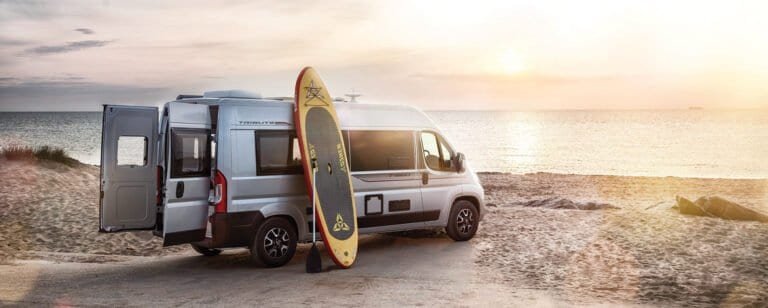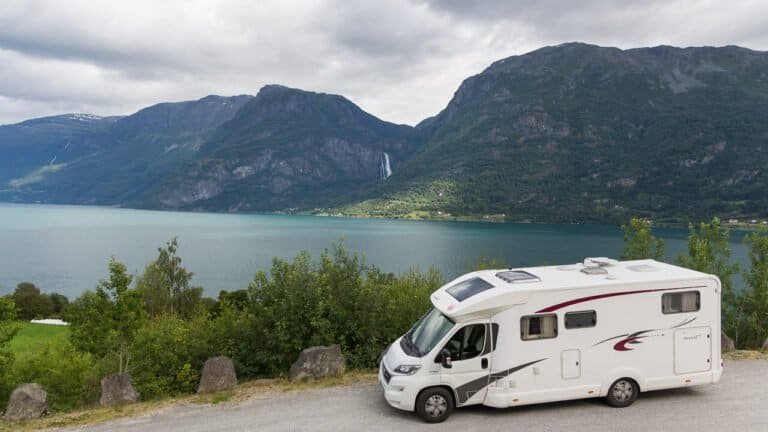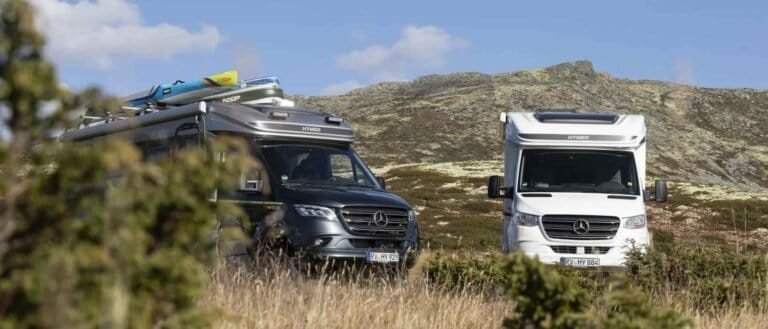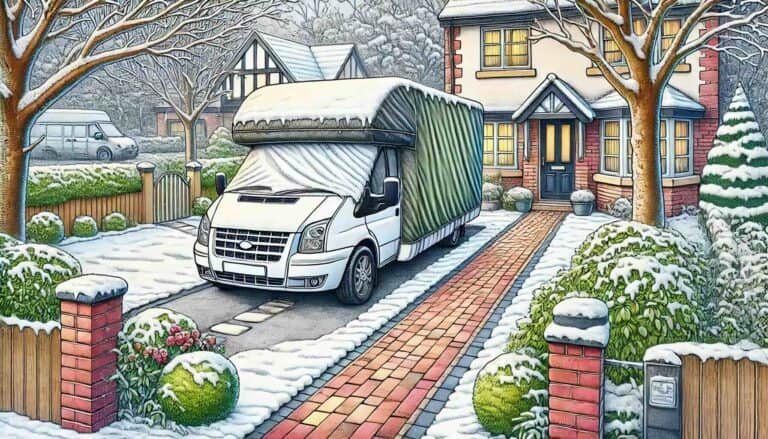Campervan and motorhome living has become increasingly popular across Europe, offering a unique way to explore new destinations with the comfort of your own space. For beginners, the idea of living on the road is thrilling but can also feel overwhelming. This guide provides practical tips to help new campervan and motorhome owners adapt to the lifestyle, covering everything from choosing the right vehicle to staying safe and managing costs.
Key Takeaways
- Choose a vehicle that matches your needs, budget, and lifestyle.
- Plan your routes and overnight stops with the help of maps and campervan apps popular in Europe.
- Set a realistic budget and track expenses, focusing on ways to save while on the road.
- Follow essential safety practices for both driving and parking.
- Establish routines and organise your space for a comfortable, functional living area.
1. Choosing the Right Campervan or Motorhome
Choosing the right vehicle is a key step in beginning your campervan or motorhome journey. Your choice will directly impact comfort, mobility, and costs on the road.
Campervan vs. Motorhome: What’s Right for You?
- Campervans are usually smaller, often built from converted vans, and provide a more compact and stealthy option for travelling. They’re ideal for solo travellers or couples who want flexibility and ease of parking in cities or narrow European roads. Campervans are generally more fuel-efficient and easier to manoeuvre.
- Motorhomes are larger, purpose-built vehicles with dedicated areas for cooking, sleeping, and storage. They offer more living space and comfort, making them a great choice for families or those who value a bit of extra room. However, they’re typically less fuel-efficient and can be trickier to park in tight spaces.
Consider your lifestyle needs and destination types. If you plan to work remotely, a motorhome with a designated area for a small desk might be a better fit for long-term comfort.
Budget Considerations
- New vs. Used Vehicles: New vehicles come with a warranty and modern features, but they can be costly. Used models are often more affordable and sometimes come with valuable modifications. However, always inspect a used vehicle carefully for wear and tear.
- Ongoing Costs: Remember that fuel efficiency, maintenance, and insurance costs vary between campervans and motorhomes. Campervans are generally more fuel-efficient and have lower insurance costs, while motorhomes offer more space but may require higher ongoing expenses.
2. Essential Gear and Setup Tips
Once you’ve chosen your vehicle, equipping it with the right gear and setting it up efficiently will make life on the road more enjoyable and convenient.
Basic Essentials for Campervan Living
Stocking up on a few essentials can make your vehicle feel like home and simplify day-to-day life:
- Kitchen Gear: Invest in compact kitchen items like collapsible pots, reusable containers, and a portable stove. A mini fridge or cooler is essential for storing perishable foods.
- Bedding: Choose bedding suited to varying temperatures. A quality sleeping bag or compact duvet, along with memory foam mattress toppers, can enhance comfort in small spaces.
- Storage Solutions: Make the most of your limited space with organisers, hanging hooks, and stackable bins. Keep heavier items in low storage areas for stability while driving.
Setting Up for Comfort and Convenience
- Maximising Space: Multi-functional furniture, such as convertible beds and folding tables, is ideal for campervans. For example, a folding bed platform can provide storage underneath, and collapsible chairs can double as both indoor and outdoor seating.
- Power and Electronics: Solar panels, a secondary battery, and power banks are popular options for charging devices and small appliances, reducing reliance on external electricity sources.
- Ventilation: Proper ventilation is essential, especially when cooking. A roof vent or portable fan helps prevent condensation and keeps air circulating.
Pro Tip: Keep a basic toolkit on board, including items like a screwdriver, duct tape, and a puncture repair kit. These can be invaluable in emergencies.
3. Planning Your Routes and Stops
One of the biggest perks of campervan living is the freedom to explore. However, planning your routes and stops can help avoid unexpected hassles and make the experience even more enjoyable.
Using Maps and Campervan Apps for Route Planning
- European Campervan Apps: Apps like Park4Night and Campercontact help you find camping sites, rest areas, and campervan-friendly parking spots. Many apps include user reviews, so you can assess locations based on others’ experiences.
- Mapping Essentials: Map out key facilities along your route, such as fuel stations, grocery stores, and medical services. Having a list of essentials nearby can be particularly useful in remote areas.
- Weather and Road Conditions: Road conditions in Europe vary by season and region. Use navigation apps with real-time updates to monitor weather and road closures, especially if travelling in mountainous or rural areas.
Choosing the Right Overnight Stops
- Campgrounds vs. Wild Camping: Campgrounds offer facilities like toilets, showers, and electricity, which make them convenient for short or long stays. Wild camping (free camping) is often available in many parts of Europe, but it’s important to check local regulations, as not all countries permit it.
- Safety Considerations: Look for well-lit, populated areas when choosing an overnight spot, especially in unfamiliar locations. Avoid isolated spots unless you’re confident about the safety, and always secure your doors and valuables.
4. Managing Finances and Costs
Living on the road doesn’t have to be expensive, but it’s essential to budget carefully and plan for ongoing expenses.
Key Costs to Consider
- Fuel: Fuel can be one of the biggest expenses, especially when covering long distances. Check for fuel stations with competitive prices along your route, and consider alternative routes to avoid excess backtracking.
- Campground Fees: Campground costs can vary widely across Europe. Look for budget-friendly options or consider alternating between paid sites and free camping when legal.
- Maintenance and Repairs: Budget for regular maintenance, such as oil changes, tyre replacements, and any unexpected repairs. Roadside assistance tailored to campervans and motorhomes can be invaluable.
- Food and Supplies: Cooking your own meals is a great way to save money. Stock up on long-lasting staples and food that stores well in a small kitchen.
Budgeting Tips for Campervan and Motorhome Living
- Memberships and Passes: Some campgrounds and national parks offer yearly passes or discounts that can lead to significant savings over time.
- Track Expenses: Use a budgeting app to keep track of your expenses in categories like food, fuel, and accommodation. This helps you avoid overspending and adjust as needed.
5. Staying Safe on the Road
Safety is essential for campervan and motorhome travellers. Here are some practical tips for both driving and parking.
Driving Safely in a Larger Vehicle
- Practice Makes Perfect: Larger vehicles require more care when manoeuvring, parking, and reversing. Practising in open spaces before your journey can help you get comfortable.
- Stay Aware of Vehicle Dimensions: Many routes in Europe have height or width restrictions. Check your route in advance and use GPS settings for large vehicles to avoid tight spaces.
- Take Regular Breaks: Driving a large vehicle can be more demanding than a car. Take breaks to avoid fatigue, and switch drivers if possible.
6. Adapting to Full-Time Life on the Road
Transitioning to life on the road full-time can be a big adjustment. Here are some tips for finding balance and comfort.
Creating a Routine
Establishing a daily routine, like a morning coffee ritual or evening tidy-up, can help create a sense of normalcy. Small habits, such as keeping essentials in designated spots, can make living in a small space more manageable.
Conclusion
Living in a campervan or motorhome offers a unique and freeing lifestyle that lets you explore at your own pace. From selecting the right vehicle to mastering road safety, budgeting, and creating routines, there are plenty of ways to make this lifestyle enjoyable and sustainable. Whether you’re a weekend traveller or planning to go full-time, the tips and advice in this guide will help you get started with confidence and make the most of life on the open road.
Frequently Asked Questions (FAQs)
1. How much does it cost to live in a campervan full-time?
Living costs in a campervan or motorhome vary depending on lifestyle choices, but key expenses include fuel, campsite fees, maintenance, and food. Budget-conscious travellers often spend between €500–€1,200 per month. This can be adjusted by opting for free campsites, cooking meals instead of eating out, and choosing fuel-efficient routes.
2. Can I park and sleep anywhere in a campervan?
In Europe, rules for overnight parking vary by country and region. While some areas permit free camping, others restrict it. Apps like Park4Night and Campercontact are helpful for finding legal camping spots and parking areas that allow overnight stays.
3. What are some essential campervan apps for European travellers?
Popular apps include Park4Night for finding parking and camping spots, Campercontact for campsite recommendations, and Maps.me for offline navigation. These tools can help you locate essentials such as water refill stations, fuel stops, and rest areas.
4. How can I access water and other essentials on the road?
Most campgrounds provide access to water refill stations. For those who prefer wild camping, refill stations are available at many petrol stations, public parks, and rest areas. Some travellers use portable water filters for convenience.
5. Do I need special insurance for a campervan or motorhome?
Yes, specialised campervan or motorhome insurance is recommended as it covers unique needs like theft, accidental damage, and breakdown assistance. European insurance providers often offer specific packages that cover campervans for road trips, extended stays, and cross-border travel.
6. What’s the best way to keep a campervan warm in winter?
Insulation is key to staying warm. Options include thermal curtains, insulated windows, and compact heaters. Diesel or propane heaters are popular among campers in colder climates, though proper ventilation is essential when using any heating device.
7. Is campervan life comfortable long-term?
Many find campervan living comfortable once they adjust to the smaller space. It’s important to choose the right vehicle and maintain a routine that balances work, leisure, and rest. Minimalism helps keep the space organised and functional.
8. How do I stay connected to the internet while travelling?
Mobile data plans with good European coverage, portable Wi-Fi routers, and signal boosters are popular options. Public Wi-Fi is also available at many campsites, cafés, and libraries, though it may be less reliable in rural areas.
9. What essentials do I need for a campervan kitchen?
For a functional campervan kitchen, basic essentials include a portable stove, lightweight pots, collapsible dishes, and a small fridge or cooler. Space-saving storage containers are also useful, as well as reusable bags for organising ingredients.
10. Can I work remotely while living in a campervan?
Yes, many people work remotely from their campervans. To do so comfortably, you’ll need reliable internet, a portable power source (like solar panels), and a dedicated workspace. Setting up a routine can help balance work and travel.








